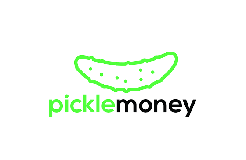Did not receive verification mail? Please confirm whether the mailbox is correct or not Re send mail

Vapor
- 2019-11-20 10:16:23
FOX Trademarks 'OK Boomer,' but Can You Own a Meme?

FOX Searchlight has filed an application to secure the trademark for "OK Boomer," the popular catchphrase being used to denigrate members of the generation born between 1946 and 1964.
Trademark lawyer Josh Gerben posted the filing on Twitter, noting that it was for use in a "reality, comedy or game show."
The
phrase has enjoyed a dramatic rise in popularity over the last few
months, as the election has brought up generational conflicts on how the
world is run and what previous generations have left for young people
to deal with.
It's easy to see why FOX would want to capitalize
on the trend, especially with an unscripted program which typically
takes significantly less time and budget to produce.
This is far
from the first time a major company has attempted to cash in on a
successful meme, and it raises legal questions as to the ethics of
intellectual property ownership in the internet age.
FOX is not
the creator of "OK Boomer," but they can certainly trademark the phrase
in spite of that. The U.S. trademark system under the Lanham Act lets
you file "text marks," or combinations of words that are legally
protectible, as long as they are not what is known as a "common word" in
relation to your product.
The best example of that is Apple
Computers—because "apple" is a common word in food products, it would be
impossible for an orchard to trademark the word. But it is not a common
word for computers and electronics, so the government has granted Apple
the trademark in that area.
In 2014, Ultra Pro International
filed a trademark application for "Doge," an Internet neologism used to
describe Shiba Inu canines. The "doge" meme sprung from a photograph of a
female Shiba named Kabuso making a quizzical expression and surrounded
by broken English text in Comic Sans, and it spread rapidly to places as
far-flung as a cryptocurrency branch and a NASCAR vehicle wrap.
After
backlash around the trademark application, Ultra Pro released a
statement saying that they only intended to enforce it around specific
products—card sleeves, boxes and accessories—and would not block other
companies from using the word or the dog's image on non-competitive
items. Their application was granted and they continue to sell Doge
products.
A common barrier for trademarking memes comes with the
associated copyright. In the United States, the creator of the work is
granted automatic copyright protection at the instant they make
something. That protection gives them the legal authority to block other
people from reproducing or profiting from their creation. In the Ultra
Pro case, they made an agreement with the Shiba Inu's photographer to
financially compensate them for use of the dog's image.
"OK
Boomer" has no associated copyright, as the origins of the phrase are
murky. It's been traced back to posts from 2015 on controversial message
board 4Chan, but exploded in popularity starting in January.
The
US Patent and Trademark office does take into account both prior and
common use when they review an application. If a mark has entered common
use, it can be challenged in court and abandoned. Examples of that
include "aspirin," "dry ice" and "thermos," all of which are now common
terms and not protected by trademark law.
FOX's filing for "OK
Boomer" is likely to succeed based on prior cases, but it remains to be
seen whether the meme will still have legs by the time the show makes it
to TV screens.
Source:Newsweek
Author:K THOR JENSEN
Editor:Vapor
- I also said the two sentence
- Also you can enter 140words






